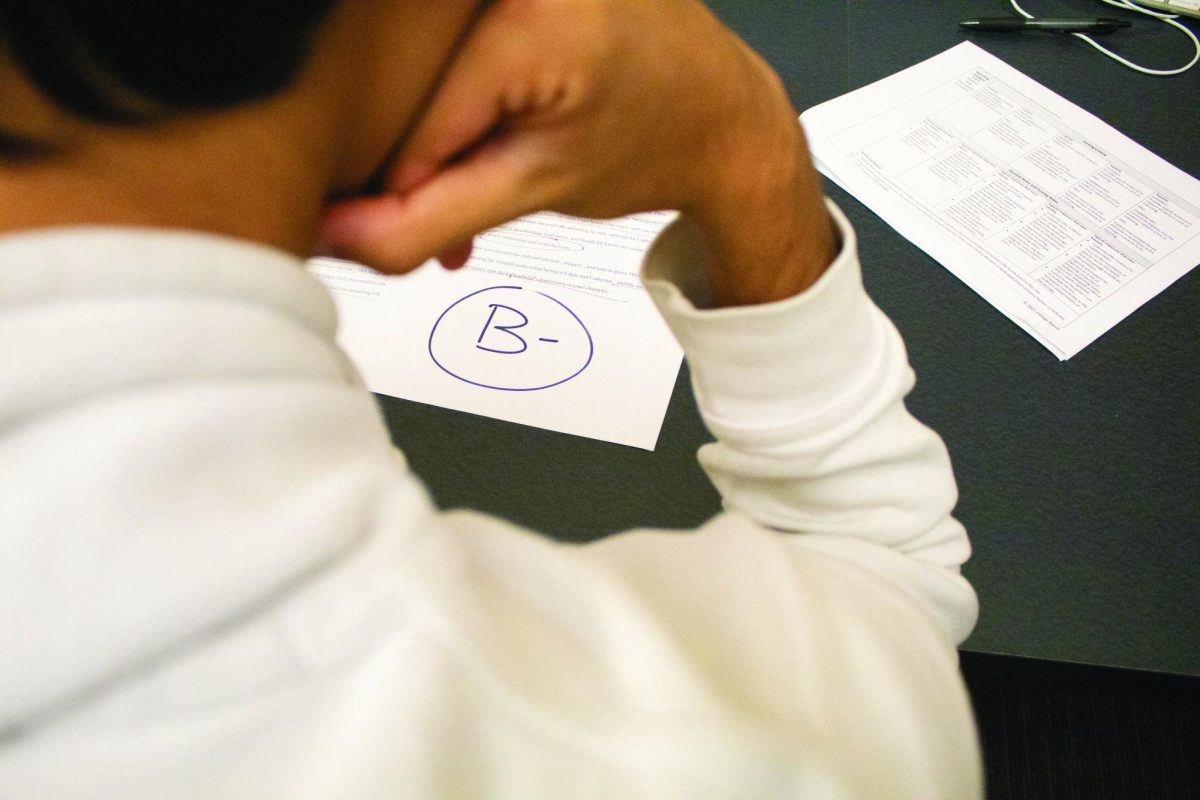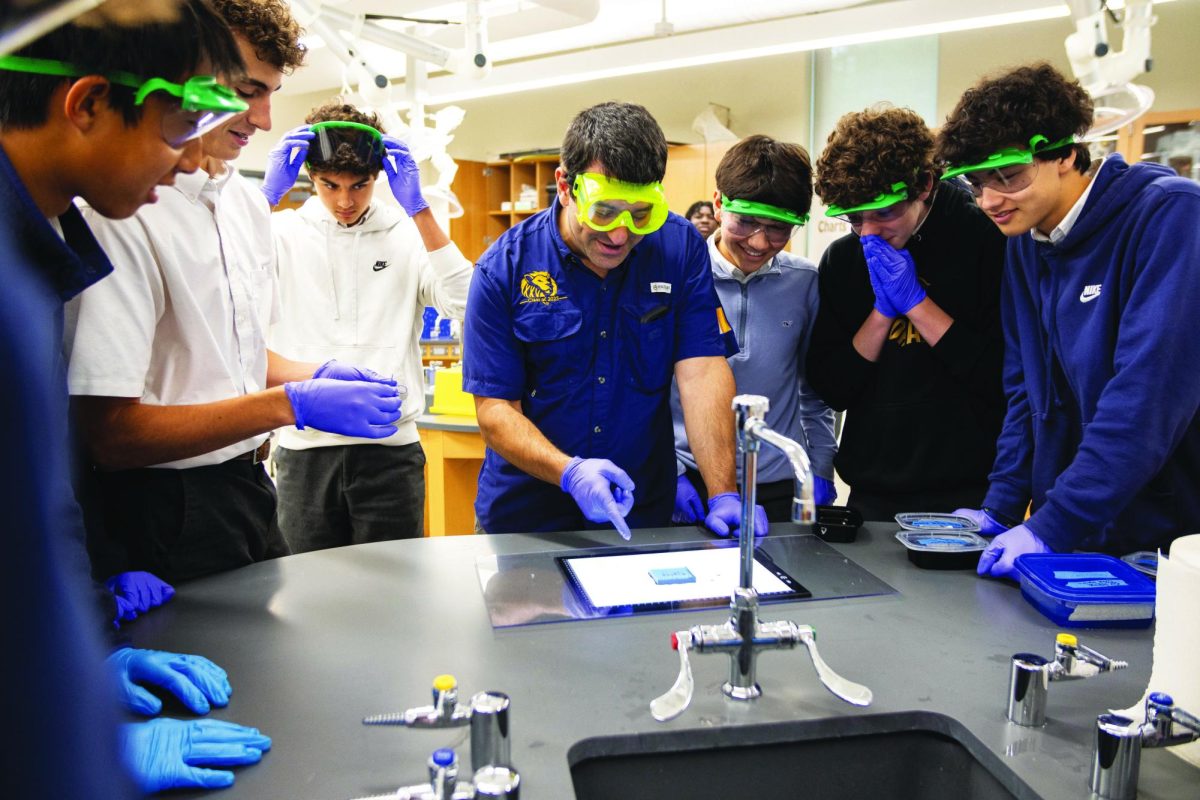The English department faces challenges that no other department faces: subjectivity of grading. Essay grades are constantly a source of stress for Marksmen who can feel as if they’re graded unfairly. However, Department Chair Michael Morris and the rest of the English Department have worked hard to form objective systems of grading for the seemingly subjective assignments.
While math tests seemingly only have one objectively correct response, essays might seem to give a lot more room for interpretation as it is based on a non-objective measure, but Morris believes the two are actually more similar than most people think.
“I think sometimes there is the perception that in math, it’s right or it’s wrong, and there’s the perception that in English, it’s subjective,” Morris said. “But I would argue that they’re actually much more alike than that. Working through a math problem sort of seems a little bit like is similar how you move, let’s say, from the introduction of a paper through the thesis and the argument to the conclusion. It’s the same kind of process you’re going through. What I try to do is look at all of the different components of the paper (mechanics, structure, use of text for support, etc.) to get an objective sense of what the paper deserves. ”
Occasionally, students feel that they should have received a higher grade on a test, but this problem is somewhat amplified in English because there is no one response that will guarantee an ‘A’ or ‘B’.
To combat this, some teachers provide rubrics to specifically highlight the objectives of the writing assignment, but there is still room for interpretation within this.
Additionally, Morris believes that the rubrics help students learn what areas of writing they need to improve on for future assessments.
“I tend to give teachers the flexibility to use the approach that they think is most effective for their teaching,” Morris said. “My bottom line with them would be, do the students know the basis for their grades, and do they learn from them? Is there the opportunity to improve based upon the feedback given? I want to make sure that students are getting thorough feedback on their writing in such a way that as the months and years go by, they improve as writers.”
Morris believes that it is important for teachers to see the processes and techniques students are using to ‘solve the problem’ and then refine these processes for later, in a similar vein to objectives of the Math Department. And, while the seemingly subjectivity of English may bring trouble with grading, it is also one of Morris’ favorite parts of the subject. Students are able to argue a completely different yet valid point while using textual evidence that can still create a compelling argument.
By far the least understood component of an English grade is student participation. Every teacher values and grades it differently, yet it remains a constant part of every English class at the school. There is no officially set rubric to earn a high level participation grade, but Morris believes that students with good participation grades often meet a few basic criteria.
“I think what teachers like, so to speak, is good, hard effort and preparation for class, nd a willingness to contribute in class. It’s about what our discipline values, not about liking a student. We care about all of our students.” Morris said.
Also, the English department has monthly meetings for teachers to discuss their grading strategies with each other and for Morris to get a sense of how the different levels of English are going.
Ultimately, for Morris, good grades are based on expectations and a student’s ability to meet or surpass expectations.
“If I’ve asked students to write a sentence that uses a new vocabulary word correctly, I might look for the correct spelling of the word, I might look for context clues that reveal an understanding of the meaning of the word, and. I might look for prepositions that reflect that the student knows how to use the word with a phrase,” Morris said. “I would have had to let students know in advance that those were the expectations, and then I would grade that sentence based on those different components.”








